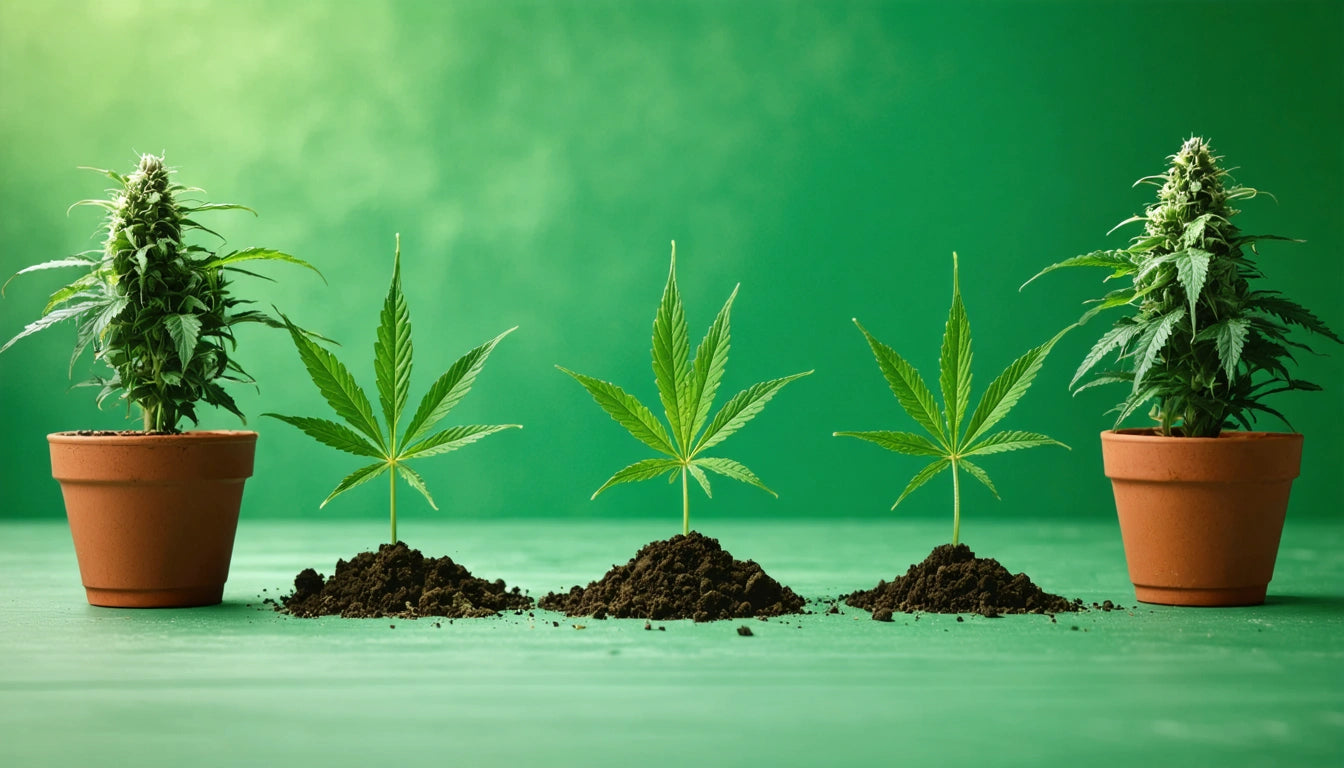Table of Contents
Exploring the Relationship Between Cannabis and Autism: Benefits and Risks
As cannabis legalization expands across the United States, many parents and caregivers of individuals with autism spectrum disorder (ASD) are exploring alternative treatments, including cannabis-based therapies. Questions like "does weed help autism" or "does cannabis cause autism" reflect growing interest in understanding the complex relationship between cannabis and ASD. This article examines current research, potential benefits, and important considerations regarding cannabis use for autism symptoms.
Understanding Autism Spectrum Disorder
Autism spectrum disorder encompasses a range of neurodevelopmental conditions characterized by challenges with social interaction, communication difficulties, repetitive behaviors, and sensory sensitivities. The severity and presentation of symptoms vary widely among individuals, making treatment approaches highly personalized.
Common symptoms that significantly impact quality of life include:
- Anxiety and stress responses
- Sleep disturbances
- Self-injurious behaviors
- Hyperactivity and attention difficulties
- Sensory processing challenges
- Digestive issues
Current conventional treatments typically include behavioral therapies, speech therapy, occupational therapy, and sometimes medications to address specific symptoms like aggression or attention deficits.
Current Research on Cannabis and Autism
The question "does marijuana cause autism" has been investigated, with research showing no evidence that cannabis use causes autism. Instead, research has shifted toward exploring whether cannabis or its compounds might help manage certain autism-related symptoms.
Several preliminary studies suggest that cannabis, particularly CBD-dominant formulations, may help with specific autism-related challenges. Similar to how cannabis may impact ADHD symptoms, the effects on autism appear to vary based on individual factors.
Potential Benefits of Cannabis for Autism
Anxiety Reduction
Many individuals with autism experience significant anxiety. CBD, a non-intoxicating compound in cannabis, has demonstrated anxiolytic properties in multiple studies. This anxiety-reducing effect may help individuals with autism manage social situations and transitions more effectively.
Behavior Improvement
Some research indicates that cannabis-based medicines might reduce self-injurious behaviors and aggression in individuals with severe autism. These behavioral improvements could be related to reduced anxiety and better emotional regulation.
Sleep Enhancement
Sleep disturbances are common in autism. Similar to how cannabis affects mood and perception, certain cannabis compounds may help regulate sleep patterns and improve sleep quality.
Risks and Considerations
While exploring whether cannabis helps with autism, several important risks must be considered:
Developmental Concerns
The developing brain is particularly vulnerable to external influences. THC, the psychoactive component of cannabis, may impact brain development, especially in children and adolescents. This concern parallels findings from studies on cannabis-induced psychosis, highlighting the importance of careful consideration.
Medication Interactions
Many individuals with autism take multiple medications. Cannabis compounds can interact with these medications, potentially altering their effectiveness or causing adverse effects.
Variable Responses
As seen with conditions like bipolar disorder, responses to cannabis can be highly individualized. What helps one person with autism might not help another or could even worsen symptoms.
Cannabis Compounds and Delivery Methods
The cannabis plant contains over 100 cannabinoids, with CBD and THC being the most studied. For autism-related symptoms, research has focused primarily on:
- CBD-dominant formulations that minimize psychoactive effects
- Balanced CBD:THC ratios for specific symptom management
- Terpene profiles that may enhance therapeutic effects
Delivery methods matter significantly. Oil-based tinctures offer precise dosing and avoid respiratory risks associated with smoking. Our specialized filling equipment for cannabis oils helps producers create consistent, precisely dosed products essential for medical applications like autism symptom management.
Similar to approaches used for epilepsy management, oral administration allows for slower onset but longer-lasting effects, which may be preferable for day-long symptom management.
Research-Backed Approaches for Families
For families considering cannabis for autism-related symptoms, evidence suggests several important guidelines:
First, consult with healthcare providers knowledgeable about both autism and cannabis medicine. This multidisciplinary approach ensures comprehensive care and monitoring.
Second, start with CBD-dominant formulations with minimal THC, similar to approaches used for Parkinson's symptoms and Tourette syndrome.
Third, maintain detailed records of dosing, timing, and observed effects. This documentation helps identify patterns and optimize treatment.
Finally, integrate cannabis therapies with established behavioral and educational interventions rather than replacing them. The most promising outcomes appear to come from comprehensive treatment approaches.
As research continues to evolve, our understanding of how cannabis may benefit individuals with autism will likely become more nuanced. The goal remains finding safe, effective ways to improve quality of life and functional abilities for those on the autism spectrum.











Leave a comment
All comments are moderated before being published.
This site is protected by hCaptcha and the hCaptcha Privacy Policy and Terms of Service apply.